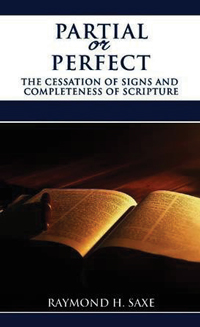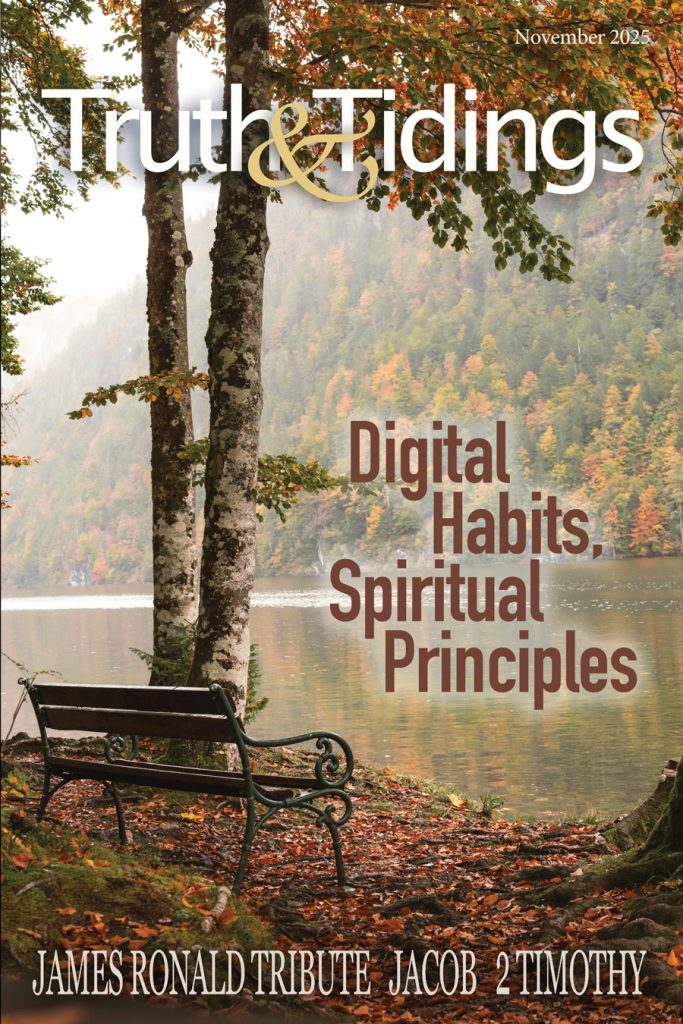 Raymond Saxe, Partial or Perfect? The Cessation of Signs and Completeness of Scripture (N. Ireland, Scripture Teaching Library), 168 pages
Raymond Saxe, Partial or Perfect? The Cessation of Signs and Completeness of Scripture (N. Ireland, Scripture Teaching Library), 168 pages
Reviewed by Reuben Miller
In this book, Raymond Saxe establishes that the Bible is our only foundation for doctrine and knowledge. He then outlines the advent of the Holy Spirit in the scriptural narrative, first at Pentecost, and then in the widening circle of His manifestation to all believers.
Having established the biblical roles of the Holy Spirit, the author turns attention to the gifts of prophecy and tongues. He explores the purposes of both in the early Church. Prophecy was that gift which allowed men to speak previously unrevealed truth from God. The gift of speaking in tongues was a sign, specifically to the Jews. Having that particular gift was not a prerequisite for baptism, and certainly not a requirement of all believers. And apart from immediate interpretation, the gift of tongues was not to be employed! It brings into focus the error of endorsing emotional experiences as a vital and necessary initiation, and calling it the gift of tongues!
Exploring 1 Corinthians 13, Saxe shows definitively how prophecy will fail (katargeo), the passive voice of the verb meaning that God will cause it to end, since after the completion of the New Testament canon, there would be no revelation of new truth. Tongues will cease (pauo). This word, however, is in the middle voice, showing that tongues will terminate on their own, having completed their purpose.
While it should be noted to use caution in regard to the author’s view of the baptism of the Spirit, this is a helpful book for our own instruction that we may know the ways of God, obey His Word, and be preserved from error.
The book is available for purchase at ritchiechristianmedia.co.uk and gospelfolio.com.

